How to Choose the Perfect Sunscreen for Your Next Trip
Sunscreen protects our skin from the sun's harsh effects. Choosing the best sunscreen typically depends on SPF, ingredients, skin type, formulation, and sun exposure level. For sensitive skin, opt for non-comedogenic sunscreens that do not contain ingredients that block skin pores.
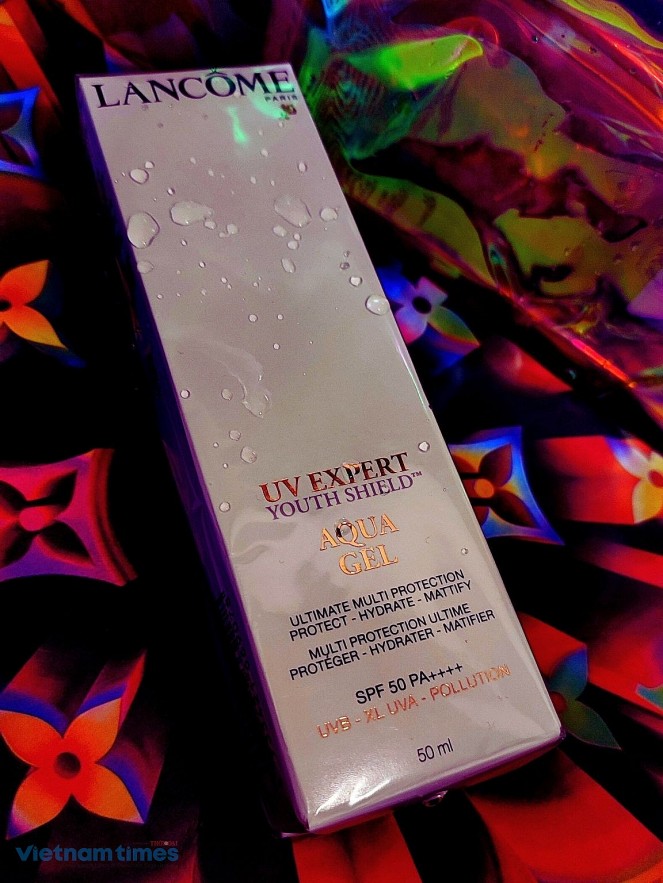 |
| Lancome Sunscreen. Photo: Ollie Le Nguyen |
What Is the Function of Sunscreen?
Sunscreen works largely by blocking and absorbing UV radiation via a variety of physical and chemical particles.
While physical particles like zinc oxide and titanium dioxide help to reflect UV radiation away from the skin, the sunscreen's chemical constituents react with the radiation before it reaches the skin. They also absorb the sun's rays and release heat as a result.
Your skincare regimen can change drastically with a simple product like sunscreen. Let's look at some factors to rate which one is the best.
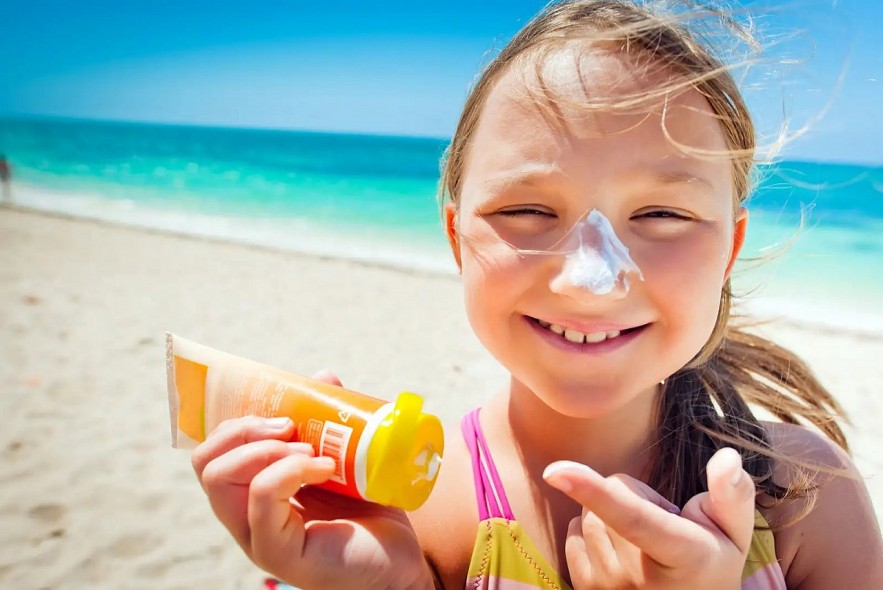 |
| Photo: Britannica |
How Do You Pick The Best Sunscreen?
When selecting a sunscreen, keep in mind any allergies you may have to specific components, as well as the product's safety and potential toxicity. You must also check that the sunscreen's chemicals do not interfere with your hormone balance.
Keep an eye out for the active ingredients
Examine the sunscreen's active components. Look for products with titanium dioxide, zinc oxide, and avobenzone in the ingredients list
Make sure to stay away from sunscreens that contain vitamin A. (commonly referred to as retinyl palmitate). It's thought that vitamin A raises the risk of skin cancer
Consider choosing the right SPF (Sun Protection Factor)
The SPF of a sunscreen is basically a measurement of how much UVB light it can block. Sunscreen with an SPF of at least 15 will help protect you from the UV rays that you are exposed to on a regular basis.
Most physicians, however, advocate applying an SPF of at least 30 because it prevents roughly 97 percent of UVB rays (SPF 15 may only block 93 percent).
Make sure you apply adequate sunscreen daily to various exposed regions of your skin. This is especially vital on days when you will be spending a lot of time outside.
Opt for a broad-spectrum SPF
Choose a broad-spectrum sunscreen with an SPF of 30 to 50. It aids in the protection of your skin from sunburn and sun damage. It also aids in the prevention of UVA radiation
You might wish to stay away from sunscreens with a very high SPF (over 50). It is commonly assumed that such items provide little additional protection and are also costly.
Take into account your level of sun exposure
Another important consideration when selecting sunscreen is your level of exposure to the sun. For example, you must evaluate how long you will be exposed to the sun, how powerful it will be, and what activities you will be doing while in the sun.
The Ultraviolet (UV) Index, which ranges from 1 (low) to 11+, is commonly used to determine the sun's power (extreme). These UV rays are highest between 10 a.m. and 4 p.m., and our unprotected skin can burn in 15 minutes or less when the UV Index is 8 or higher. Here's what you should use as sunscreen based on your amount of sun exposure:
Outdoors: If you plan on spending a lot of time outside (two hours or more), use sunscreen with an SPF of 30 or higher, depending on your skin color.
Sports/swimming: Choose a sweat-resistant or water-resistant sunscreen if you plan on doing sports outside or in the water. Depending on your skin tone, choose an SPF of 30 or higher and reapply every 40 to 60 minutes.
Daily: Wear sunscreen with at least SPF 15 on a regular basis when you will be in the sun and shade.
There are a few other things you can do to protect your skin from sun damage besides choosing the correct sunscreen. The following is a list of some of them.
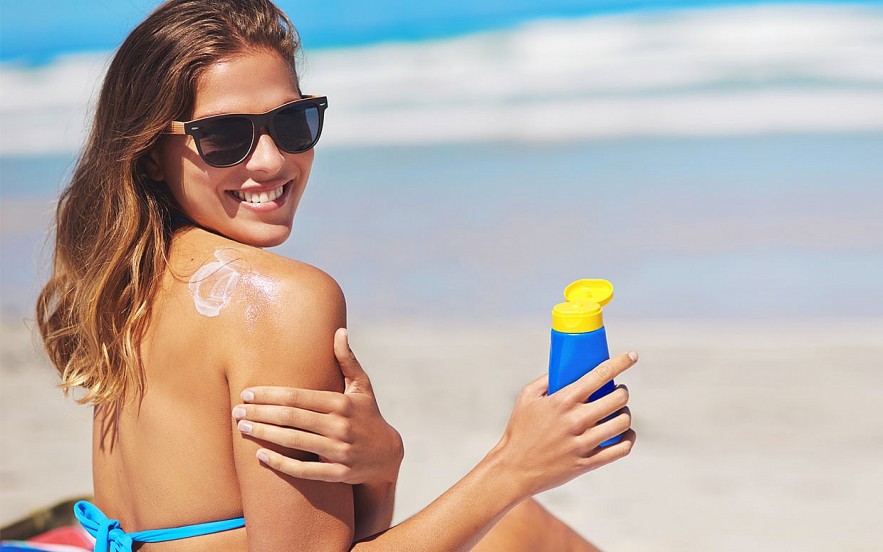 |
| Photo: Parade |
Formulation of Sunscreen
The distribution format of a sunscreen affects how it feels and appears on a person's skin, and this is referred to as sunscreen formulation. On the market, there are three typical sunscreen formulas. Although each of these types has its own set of advantages when used correctly, they can all provide sun protection:
Sprays of Sunscreen
These are ideal for applying sunscreen to areas of the body that are difficult to reach. They are a good option for anyone with a lot of body hair. However, make sure not to inhale the spray while applying.
Lotions with SPF
These are some of the most popular and hydrating sunscreen formulas. They come in a variety of colors and textures to suit different skin types.
Sticks of Sunscreen
These are some of the most portable and least dirty choices available. Applying them to your skin and massaging them in is how you use them. They are a practical alternative that is especially well suited for travel. They have a very low risk of leaking.
This is essentially a matter of personal preference. Remember that no matter which of the above options you choose, any sunscreen will only be effective if you apply an ounce of sunscreen to your entire exposed body. All sunscreens have a three-year shelf life in general. To get the greatest results, keep them in a cold, dry location.
| What makes a chemical sunscreen different from a physical sunscreen? The active chemicals used in chemical and physical sunscreens are practically the same. A physical sunscreen comprises zinc oxide or titanium dioxide that sits on top of the skin and deflects the sun's rays, but a chemical sunscreen employs active chemicals that readily absorb the sun's rays and are more easily absorbed into the skin. Chemical sunscreens are not suggested for daily use because they are absorbed into the skin. Physical sunscreens are more effective and safe in protecting your skin. |
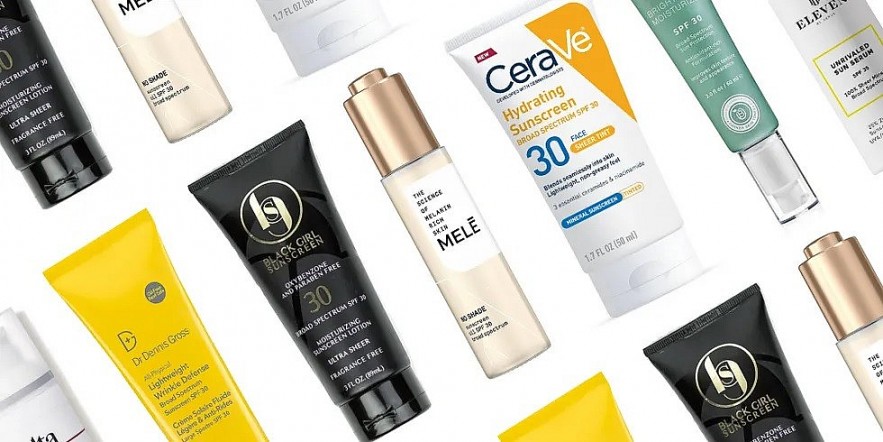 |
| Photo: Amazon |
Sunscreen Recommendations
Regardless of the season, sunscreen should always be worn.
Apply two teaspoons of sunscreen to the exposed regions of your body if you're wearing swimwear. If you're going to use a sunscreen spray, make sure to apply it evenly all over your body.
Apply sunscreen on your face, hands, feet, ears, neck, and top of your head, as well as any other exposed areas of your body (if your skin is exposed).
Apply a foundation application of SPF 15 or 30 to all exposed areas at least half an hour before going out in the sun. Every two hours, reapply.
After excessive sweating, swimming, or toweling off, reapply sunscreen. When reapplying, always follow the instructions on the label.
When picking the correct sunscreen, it's also important to consider your skin type. The best sunscreen alternatives for sensitive or acne-prone skin are discussed in the following section.
Skin that is prone to acne
Sunscreens have a reputation for clogging pores. As a result, choosing oil-free products for the face is critical. Non-comedogenic sunscreens can be used (that do not contain ingredients that block skin pores).
Moisturizers containing sunscreen or sunscreens that contain moisturizing elements are good choices for dry skin.
Skin Sensitive (Or If You Avoid Chemicals)
When sensitive skin is exposed to the smallest quantity of chemicals that it might respond to, it stays fresh and vivid. Choose a physical or mineral sunscreen that contains zinc oxide and titanium dioxide, which help to protect the skin (3). These two main elements do not irritate or burn the eyes. They protect you from the sun by sitting on top of your skin and forming a barrier.
Skin Tone
The SPF amount you should use is mostly determined by your skin color. If you have fair skin and frequently or constantly burn, for example, SPF 30 or greater is recommended. On the other hand, if you have medium to dark skin, or if you frequently tan but never burn, SPF 15 is a good choice.
Ways To Keep Your Skin Protected From The Sun
Cover up when you go out, try to avoid direct sun exposure by obtaining shelter in some way. Don't over-expose yourself in the sun.
To protect your skin from the sun as much as possible, dress accordingly and wear a wide-brimmed hat. Sunglasses that block dangerous rays are a great way to keep your eyes safe.
Bring an umbrella with you. If you must stroll in the sun, bring an umbrella with you to ensure that you are fully shielded.
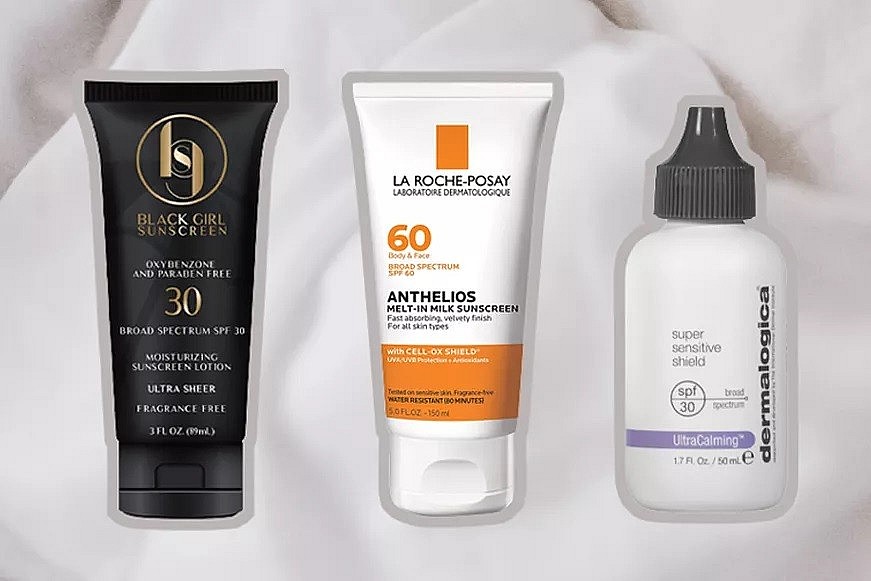 |
| Photo: Byrdie |
 | Simple Guide: Safe And Easy Tips To Fly With Your Baby Traveling with your baby can be stressful, especially if you are a first-time parent. Here are some useful tips that can help you and your ... |
 | How To Find A Good Restaurant While Travelling It is not easy to find a good restaurant in any place where you travel, but there are several ways and tips for you to ... |
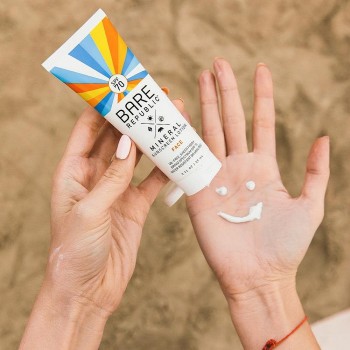 | Useful Tips For A Healthy Summer Skin Care Protecting your skin in the summer is essential, especially when the sun can seriously harm your health. Here are some simple and useful tips that ... |
Recommended
 Handbook
Handbook
Vietnam Moves Up 8 Places In World Happiness Index
 Handbook
Handbook
Travelling Vietnam Through French Artist's Children Book
 Multimedia
Multimedia
Vietnamese Turmeric Fish among Best Asian Dishes: TasteAtlas
 Handbook
Handbook
From Lost to Found: German Tourist Thanks Vietnamese Police for Returning His Bag
 Handbook
Handbook
Prediction and Resolution for the Disasters of Humanity
 Handbook
Handbook
16 French Films To Be Shown For Free During Tet Holiday In Vietnam
 Handbook
Handbook
Unique Cultural and Religious Activities to Welcome Year of the Snake
 Handbook
Handbook


